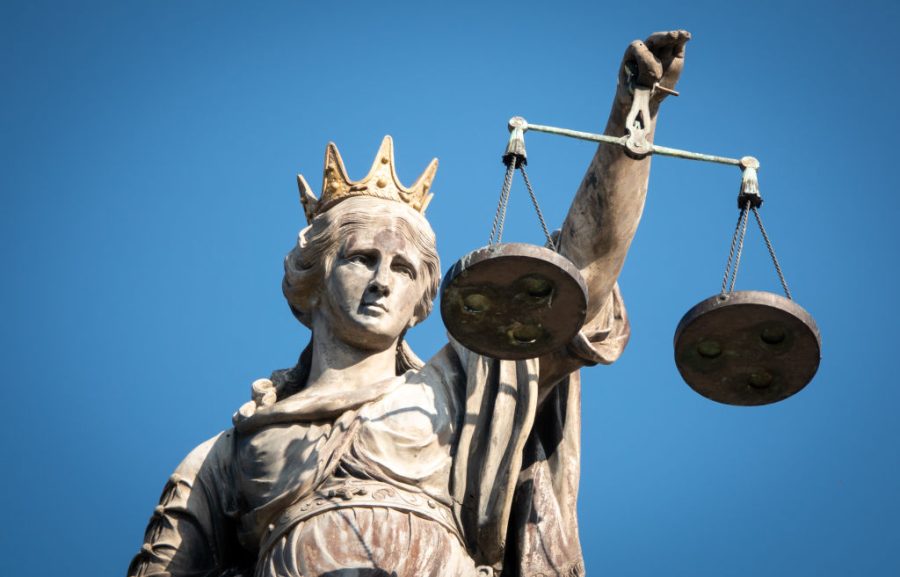We live in a country in which petty grievances and perceived slights abound, and one in which resentments and gripes are taken seriously by the state. We saw evidence of this state of affairs in two unrelated reports this week.
The first came from Leeds, where an employment tribunal found that the use of the word ‘lads’ in relation to a worker earning £95,000 a year at a farming and food production company amounted to ‘casual use of gender-specific language’, and could be legally regarded as ‘unwanted… given her account of how it made her feel’. Her level of compensation is to be decided at a later date.
Taking recourse to legal action is very much the order of the day now
It would be tempting to dismiss this as an isolated and meaningless episode, except that it’s neither. On the first count, it belongs to a growing list of court cases that begin with ostensibly insignificant, dubious or comical slights made towards workers by their bosses, a trend that culminated last month in an NHS worker taking her employers to court for comparing her to Darth Vader. She won £30,000 in compensation.
Neither is this case meaningless. It signifies a culture beholden to the notion that their subjective feelings are a matter that warrants intervention by the authorities. Taking recourse to legal action, making appeals to the arms of the state for perceived slights, is very much the order of the day now, as another widely-disseminated report reminded us on Wednesday.
A study conducted by the social cohesion campaign group Don’t Divide Us has found that equality laws are causing unsuccessful racial discrimination lawsuits to ‘sky-rocket’. Between 2017 and last year, the number of employment tribunals that included a claim of discrimination based on the characteristic of ‘race’, as defined in the Equality Act 2010, almost tripled, from 285 to 829. Tellingly, while such claims have shot up, the number of successful cases has remained stable and more or less unchanged. According to Alka Seghal Cuthbert, the campaign group’s director, the Equality Act has:
Handed inordinate power to those making malicious or bogus claims or to thin-skinned people willingly misinterpreting perfectly innocent comments or interactions.
A society characterised by petty grievances and aspirations to victim status has two clear sources. One was the emergence and veneration, first noted in the 1990s, of the culture of victimhood and ‘getting in touch with your feelings’, which manifested itself in people blaming society for all their ills and wallowing in self-pity when things went wrong. The idea that the woes of individuals can be ascribed to vague forces and impersonal external agents continues today, with customary accusations that shortcomings of institutions can be ascribed to nebulous ‘institutional’ or ‘systemic’ failings.
The second source can also be found in the 1990s, in what was then baptised ‘political correctness’. With a subsequent large injection of postmodern theory from academia, that ideology evolved into what came to be known as ‘woke’, or hyper-liberalism. It’s essentially the same way of thinking, one that abounds in resentment and resorts to finger-pointing, but now with turbo-charged levels of paranoia and megalomania.
Even before wokery arrived in Britain roughly ten years ago, the groundwork had been laid down for an irrational culture of imagined grievance. The 1999 Macpherson Report made it policy that discrimination needn’t have to be observed or proved – but only perceived. That report first brought to the public’s attention the conceit of ‘institutional racism’, one which, in its wording, could be detected:
In processes, attitudes and behaviour which amount to discrimination through unwitting prejudice, ignorance, thoughtlessness and racist stereotyping which disadvantage minority-ethnic people.
This extension of an unverifiable subjective view of discrimination was enshrined in law in the Criminal Justice Act 2003. Today a hate crime is defined as ‘any criminal offence which is perceived by the victim or any other person, to be motivated by hostility or prejudice’. With the introduction of non-crime hate incidents in 2014, potentially harmful words no longer even had to cross the threshold of criminality to warrant a visit by the police.
In order to banish racism, progressive legislation has stretched the scope by which it can be defined to unreasonable and intrusive degrees. A state that encouraged the idea that racism and prejudice are diabolical and invisible forces, ones that inhabit the minds of those who carry it ‘unwittingly’, ones that can be ‘perceived’ but not seen or heard, is a state that has reduced a country to one riddled with paranoia and petty narcissism.
Law and justice should be based on objective facts, not subjective impressions. It’s fitting that just the other week we witnessed the de facto reintroduction of blasphemy laws into this country. We are heading back to the dark ages of suspicion and denunciation.







Comments